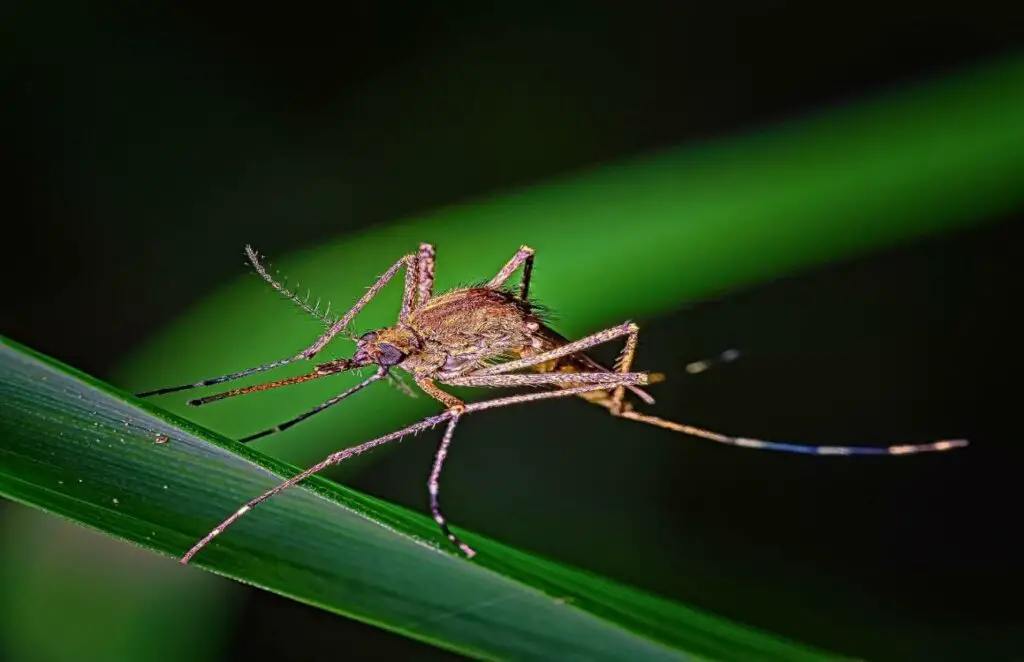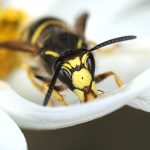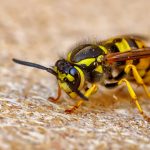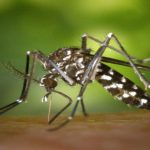There are about 3,000 different species of mosquitoes, but only the members of three families are primarily responsible for the transmission of diseases to humans.
There is just one kind of mosquito that is known to carry malaria, and that is the Anopheles mosquito. In addition, they are the carriers of encephalitis and filariasis, also known as elephantiasis.
Mosquitoes of the genus Culex are known to transmit encephalitis, filariasis, and the West Nile virus. In addition, yellow fever, dengue fever, and encephalitis are all transmitted by Aedes mosquitoes, of which the voracious Asian tiger is a member.
According to the findings of entomologists, insects do not possess the same kinds of pain receptors that are found in vertebrates. They do not experience what we would call “pain,” but they might feel irritation and can probably tell if they are damaged. Despite this, they can’t experience pain because they lack emotional life.

Does a mosquito have feelings?
Nociceptors are present in the majority of human bodies, and they are responsible for allowing us to feel unpleasant stimuli once they reach a certain threshold.
This neurological response is called nociception, and a process that is very similar to it has been identified in fruit flies.
However, insects do not have nociceptors because they do not have nervous systems. Since this is the case, it is clear that none of the insects, including mosquitoes, have the nociceptors that are the only reason humans can feel what is happening to their bodies.

Can insects be sentient?
Even though it is not known whether or not insects are sentient (capable of having feelings and emotions), the breadth of cognitive abilities that they are capable of displaying is undeniably impressive. There is some evidence that insects possess sentience. However, the methods necessary to accurately evaluate their internal experiences are not yet fully developed.
Are Insects and other arthropods conscious?
The following line of reasoning, which is an argument based on homology, can be considered about the topic of insects. Insects have a nervous system that is not only centralized due to the presence of ganglia but also includes a brain.
This centralized nervous system allows insects to perform complex behaviors. However, one thing that can’t be overlooked is the fact that it has a very basic and limited brain. Therefore, it is not possible to draw a definitive conclusion about insects’ conscious states based solely on their physiological makeup.
Aside from this, the behavior of some insects can be described as being very straightforward. The behavior of others, on the other hand, can be quite complicated.
Bees are a great illustration of this concept. Their actions, such as their well-known waggle dance, give us reason to believe that they are, in fact, conscious beings.
Specifically, their actions give us reason to believe that they have experience. , Mosquitoes are just one example of an insect that shares a physiological structure very similar to that of bees but exhibits behaviors that are orders of magnitude less complex than those of bees.
Because of the striking similarities between their nervous systems, it’s possible that we could mistakenly believe that they are conscious if we assume that bees are conscious.
Because of this greater variation among insects, an alternative way to respond could be to assert that bees (or, more generally, hymenopterans, which is the insect order to which bees belong and which includes wasps and ants) are conscious, whereas other insects are not conscious. Or perhaps, even if all insects are conscious, bees can have experiences that are more intense than those of other insects. It seems more likely that this is the case than it does that sentience is only present in some insects. Even though there are notable distinctions between how insects behave, there aren’t nearly as many differences between how they function physiologically that would lead us to believe that only some of them are conscious.

Do mosquitoes remember you?
Research has proved that mosquitoes remembered defensive individuals for at least a day and avoided them like the plague as a result.
An Aedes aegypti mosquito consumes blood from a human hand as it feeds. According to a recent study, mosquitoes may be able to learn to avoid people who swat at them because they can recognize the smell of those people.

Are Mosquitoes Found in Tropical Places Without Mosquitoes?
When planning a vacation to tropical destinations, it’s essential to consider whether they are tropical mosquito-free destinations. Mosquitoes are commonly found in tropical places, but fortunately, some destinations have managed to control their mosquito populations effectively. These tropical mosquito-free destinations provide a worry-free experience, allowing travelers to truly relax and enjoy their time in the beautiful tropical surroundings.
If you keep swatting at a mosquito, will it leave you alone?
Because if you keep trying and failing, the mosquito might learn to associate the vibrations from your swatting with your scent, and it might remember that this is not a person who will put up with me. This is especially true if you keep trying and failing.
A mosquito is being put through a test to see how it reacts to different smells Mosquitoes can notice a person’s scent, temperature, and sweat. They can also tell if a person is pregnant or has been drinking.
Mosquitoes, which are responsible for the transmission of diseases such as West Nile Virus, malaria, and Zika, do not simply bite anything. They favor people over other animals, and they favor particular people more than others.
A bug’s survival needs to be able to recall the scent of a particularly hostile individual who has a propensity to swat at things. One good whack to the mosquito’s head will put an end to its biting. Mosquitoes can avoid potentially dangerous hosts by using their sense of smell to identify those who are likely to trigger an attack.
The senses of mosquitoes are honed to locate individuals who make ideal hosts. The carbon dioxide given off by our breath draws them in from a distance and causes their visual system to begin searching for objects with high contrast so that they can examine them.
Mosquitoes can detect things like odor, temperature, and sweat from a close distance. They can also detect things like pregnancy and alcohol use (pregnant women emit more carbon dioxide). If there are no indications that the person could be a healthy host, the mosquito will not bite.











